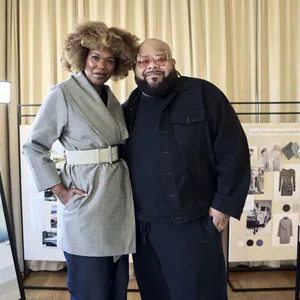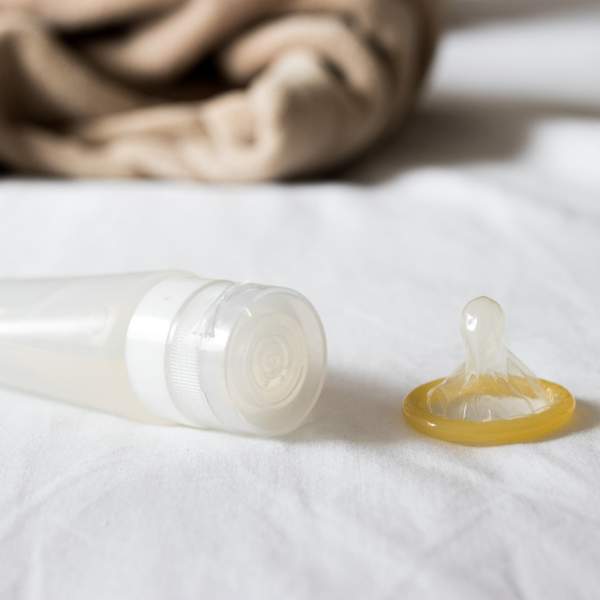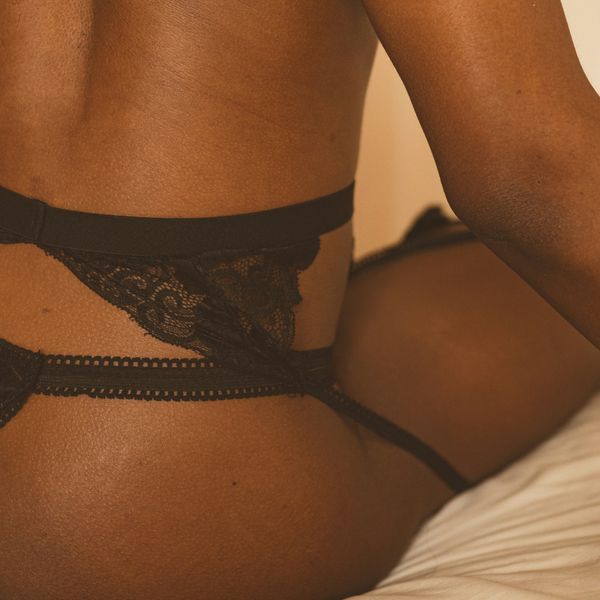Goodness, y'all. I don't know if this started off as being some twisted TikTok challenge or what, but you'll never guess what some folks are using as lubricant these days? Freakin' toothpaste. Yep, you heard me. Just like I don't get why people use toothpaste on pimples (why would you put that on any kind of lesion or open wound?!), when you think about how thick, sticky and strong toothpaste is, how in the world does it seem like it would be a good look when it comes to making sex wetter—or better? Chile, I promise you I don't know. Hmph. From what I've read, all it basically does is create genital burning, potential scarring, and a big ol' mess.
I'm hoping that none of the xoTribe is out here using what they brush their teeth with on anything else, but I will say that reading about all of that ridiculousness did inspire me to write up a lil' something on how to choose the right kind of lubricant. Not that natural bodily fluids aren't bomb or anything, but sometimes, bringing a little extra slip to the table—well, bedroom—can be what makes sex even more extraordinary. Feel me?
If you're a lubrication fan, but you're not always sure how to get about getting the kind that's best for you, here are 10 facts that can make the selection process so much easier.
1. Water-Based Lube Is Most Popular. Silicone-Based Lube Lasts the Longest.
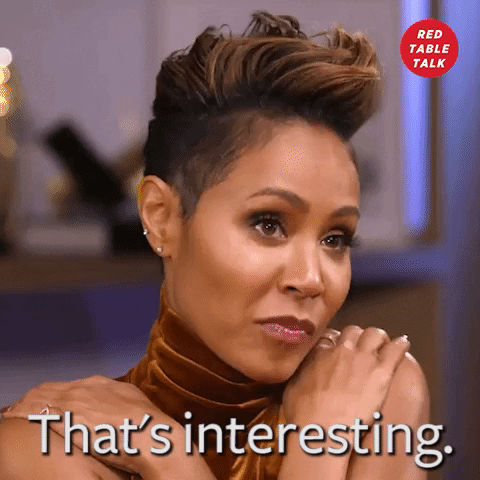
I'm thinking that water-based lubricant is probably the most popular simply because a lot of people aren't as aware of the other options. As far as what its benefits are, it's pretty good if you happen to have sensitive skin or are prone to irritation. Another benefit is it easily washes out of fabric. The downside is it tends to have a residue to it that can be a bit on the sticky side. Plus, it is an absolute no-no when it comes to shower sex (you would need a different kind of lubricant; something "slicker" than water).
This is where silicone-based lube comes in. It has way more slip, you can use it in water, and you don't have to keep reapplying it (like you do with the water-based kind). So, is there a downside to lube that's made from silicone? I guess it all depends on how you look at it. It's thicker, so you can't just rinse it off with water; you usually need soap too. But if you plan on cleaning up after sex anyway, I hardly see how (or why) that should be a deterrent. Do you?
2. Don’t Use Silicone-Based Lube with Silicone Sex Toys
OK, so this is one of those points that will probably seem really obvious to some and not so obvious to others. While yes, it is totally safe to use silicone-based lube with condoms, what you do need to avoid is using it with any sex toys that may have silicone in them. The reason is because putting this kind of lube on them can actually break down the silicone material over time. When that happens, your toys can start to become a personal breeding ground for bacteria. Yuck.
3. Oil-Based Lubes Should Be for Unprotected Sex Only

If you prefer oil-based lubes, that's cool. Well, it's cool if you and your partner have been tested for STDs and you are in an honest and exclusive relationship. If there is a place where condoms and lubes do not work hand in hand, it's when it comes to lubes that have any oil in them. Oil can break down latex which defeats the entire purpose of wearing a condom in the first place.
That's why, unless you're going to have unprotected sex (or give your man a hand job), it really is best to go with a lubricant that's made out of water or silicone. Otherwise, you could end up with a few surprises.
4. There Is Such a Thing As Powder, Cream, and CBD-Based Lubricants, Too
Another option on the market are lubes that come in powder form. Yeah, that might sound a little counterproductive at first, but the reason some people prefer to go this route is because they can control how thick or thin they want their lubrication to be. And just how are they able to do that? Well, since water must be added to the lube, a little or a lot is what ultimately determines the consistency. A popular brand, for example, is X Lube.
If anal sex is more of your thing, cream lubes are something that you should have somewhere in your collection. They're thicker and longer lasting. I'm pretty sure I don't have to explain why that works in your favor when it comes to…backdoor activities. One of the oldest brands around is B. Cumming Elbow Grease Original Lubricant Cream. Just make sure to keep in mind that it's mineral-oil based. Yep—that means it can wreak havoc on latex condoms, so use wisely. (By the way, EROS has a line that is silicone-based that has some pretty strong reviews, too.)
Oh, and if you love all things CBD, we did an article on lubricant that is made from it as well. You can check that out here.
5. Warming Lubricants Suck When It Comes to Vaginal Dryness
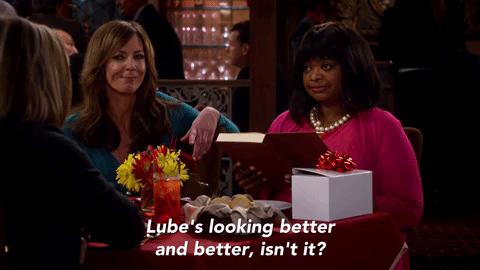
If vaginal dryness is something that you struggle with, avoid using a lube that is packaged as being a "warming lubricant". More times than not, they've got glycerin in them and that is an ingredient that, ironically, will only dry you out more at some point. Come to think of it, if you are prone to yeast infections, that's another reason to leave lubes that contain glycerin alone. They have been known to irritate the vagina and throw off one's pH balance. I'm pretty sure you'll agree when I say that no lube is worth all of that.
6. Use “Sperm-Friendly” Lube If You’re Trying to Get Pregnant
Here's something that you may not have known. There is some research that indicates lubricants can directly affect sperm motility. What that basically means is, if you're trying to conceive, a lot of lubes can actually work against, rather than for, you. That's why, if you are trying to make a baby, look for the kind of lubricant that says "sperm-friendly" or "fertility-friendly" on the packaging. A particular brand that comes to mind is Pre-Seed Fertility Friendly Lubricant.
7. It’s Pretty Easy to Make Your Own Lube
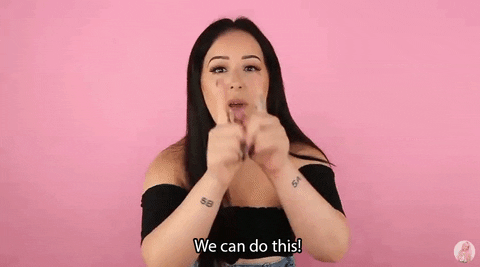
Of course, DIY'ing your lubricant is also an option. This basically falls under the category of being a plant-based lube since the ingredients that it takes to make it consists of natural things like aloe vera gel, Vitamin E, coconut oil, cocoa butter and shea butter. The pros with these are they are gentle and organic. Other benefits are they last longer than water-based lubes and are compatible with virtually any sex toy. Plus, since you are making them yourself, you know exactly what is in them. The cons are they aren't compatible with latex condoms and they can be harder to clean up. But, if you would prefer to go the homemade route, you can try out a great recipe here.
8. Lubricants Aren’t Exactly As “Safe” As You Might Think
Dun, dun, dun, dun. While lubes can most definitely make sex more pleasurable, I wouldn't say that it always or automatically makes sex safer. On one hand, it does result in less friction, which is a good thing.
But still—there are reports that lubricants can mess around and increase your chances of getting gonorrhea or chlamydia if you're using them during anal activity. How? Apparently, lube can trigger inflammation, which can make it easier for organisms to spread.
By the way, it's usually ingredients like glycerin, nonoxynol-9, propylene glycol and chlorhexidine gluconate that leads to the inflammation, so if you want to decrease the chances, read the ingredients and make sure these are as low on the list as possible before making a purchase.
9. There Are Five Things to Keep in Mind When Applying Lubricant

Now that you know just about everything you need to in order to make a wise lubricant selection, I thought it would only be right to share a few tips on how to actually apply your lube.
- Put a towel down to prevent staining.
- Warm the lube up with your hands before applying.
- Use a liberal amount during foreplay and right before penetration, for maximal pleasure.
- Apply the lube directly onto the penis or your sex toy of choice right before penetration for best results.
- Remember to reapply as needed; if you feel dry or irritated by sexual friction, that would be your cue.
While it's not super common for lubricants to cause side effects, if you experience any itching or hives, or you or your partner start to have difficulty breathing, discontinue use immediately. Also, take a shower and call your doctor if the symptoms do not subside. Again, this isn't something to get too alarmed about, but I had to make sure that I covered as many bases as possible.
10. Always Remember That Lubricants Do Expire
I'm not sure what makes people think that they can keep the same container of lube for the entire duration of their sex life because nothing could be further from the truth. Actually, a lubricant's clock starts ticking from the very moment you open it up. And just how long does it last once you do? Eh, about a year. So, if you've got anything that's been sitting in your bathroom cabinet or on your bedroom nightstand for longer than that, toss it. It's only gonna do you more harm than good if you don't.
For a list of some of the best lubes on the market, check out NY Mag's "What Is the Best Lube?" And whatever you do, stay away from that toothpaste (SMDH)!
Want more stories like this? Sign up for our newsletter here and check out the related reads below:
8 Natural Aphrodisiac Scents, Where They Go & How To Make Them Last
How To Eat Your Way To Better Sex
Love On Yourself With These 7 All-Natural DIY Vaginal Washes
Feature image by Shutterstock
- Sex Tips For Virgins For A Pleasurable Wedding Night - xoNecole ... ›
- I Tried Cannabis Lube - Here's Why You Should Too - xoNecole ... ›
- Best Lube for Sex - Self Pleasure Lubricants - Sex Toys Lube ... ›
- 10 Things You Should DEFINITELY Know About Condoms - xoNecole: Women's Interest, Love, Wellness, Beauty ›
- What To Know Before Anal Sex, Beginner Guide - xoNecole: Women's Interest, Love, Wellness, Beauty ›
- How To Increase Vaginal Lubrication Naturally - xoNecole: Women's Interest, Love, Wellness, Beauty ›
- Make Sex With Condoms Feel Better, How To - xoNecole: Women's Interest, Love, Wellness, Beauty ›
- The Best Male Sex Toys - xoNecole: Women's Interest, Love, Wellness, Beauty ›


